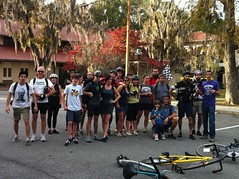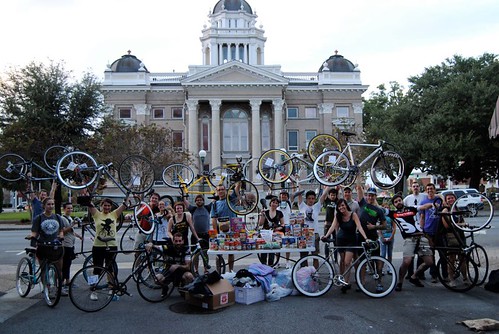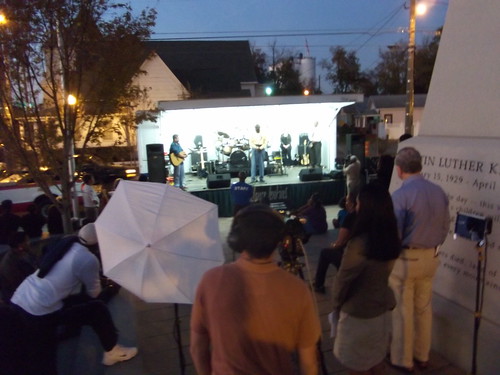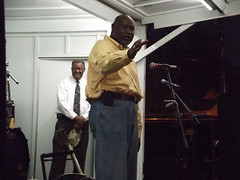Occupy UC Davis and the UC Davis Police have suddenly turned militarization
of police from an obscure topic to a huge story with more than 3,000
stories found by google news.
But what’s the connection between
Mic check stops a police riot at UC Davis
and
CCA charges inmates five days’ pay for one telephone minute?
The main cause of the militarization of police
is also the main cause of the huge U.S. prison population (5% of the world’s
population,
25% of the world’s prisoners: USA #1!).
That cause is the failed War on Drugs.
Norm Stanager wrote for YES! Magazine (via AlterNet) 17 November 2011,
Police Chief Who Oversaw 1999 WTO Crackdown Says Paramilitary Policing Is a Disaster
 Then came day two. Early in the morning, large contingents of
demonstrators began to converge at a key downtown intersection. They sat
down and refused to budge. Their numbers grew. A labor march would soon
add additional thousands to the mix.
Then came day two. Early in the morning, large contingents of
demonstrators began to converge at a key downtown intersection. They sat
down and refused to budge. Their numbers grew. A labor march would soon
add additional thousands to the mix.
“We have to clear the intersection,” said the field commander. “We
have to clear the intersection,” the operations commander agreed,
from his bunker in the Public Safety Building. Standing alone on the
edge of the crowd, I, the chief of police, said to myself, “We have
to clear the intersection.”
Why?
Because of all the what-ifs. What if a fire breaks out in the Sheraton
across the street? What if a woman goes into labor on the seventeenth
floor of the hotel? What if a heart patient goes into cardiac arrest in
the high-rise on the corner? What if there’s a stabbing, a shooting,
a serious-injury traffic accident? How would an aid car, fire engine or
police cruiser get through that sea of people? The cop in me supported
the decision to clear the intersection. But the chief in me should have
vetoed it. And he certainly should have forbidden the indiscriminate
use of tear gas to accomplish it, no matter how many warnings we barked
through the bullhorn.
My support for a militaristic solution caused all hell to break
loose. Rocks, bottles and newspaper racks went flying. Windows were
smashed, stores were looted, fires lighted; and more gas filled the
streets, with some cops clearly overreacting, escalating and prolonging
the conflict. The “Battle in Seattle,” as the WTO protests and their
aftermath came to be known, was a huge setback—for the protesters,
my cops, the community.
Did anybody consider informing the protesters of the issues and asking
for cooperation,
or checking to see if there were alternate routes for emergency vehicles,
or….
Hey, I’m not a professional emergency responder, but surely there
must be a plan B in case some major intersection is out of commission
due to a water main blowout, natural gas leak, earthquake, or whatever.
This article was published a few days before the UC Davis pepper spray events,
but the author explicitly cites what happened to Scott Olsen in Oakland
and the arrests in Atlanta, saying those are continuations of the same
problems he experience in Seattle in 1999.
Then he gets into why:
Continue reading →
 The latest update (22 November 2011) is online for the
community calendar
produced by
Jane F. Osborn
who organizes the
Valdosta Civic Roundtable.
She wrote:
The latest update (22 November 2011) is online for the
community calendar
produced by
Jane F. Osborn
who organizes the
Valdosta Civic Roundtable.
She wrote:











